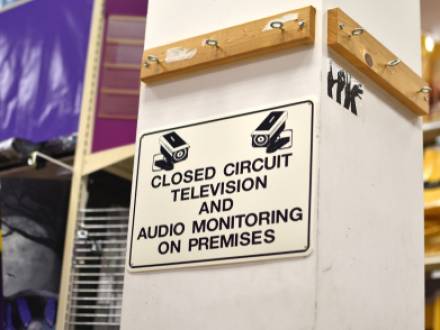What Is the Difference Between Theft and Shoplifting in Texas?
 Theft and shoplifting generally describe two separate types of criminal offenses. Theft may involve any situation where someone is accused of stealing money or property from someone else, while shoplifting or retail theft involves stealing merchandise from a store. Under Texas law, these offenses are classified as property crimes, and in many cases, they fall under the same general statute. Whether someone is facing an accusation of shoplifting a single item, committing theft of services, or participating in a coordinated scheme to steal merchandise, the consequences can be severe. An experienced Texas criminal defense attorney can help protect a person's rights and determine the best defense strategy based on the circumstances of the case.
Theft and shoplifting generally describe two separate types of criminal offenses. Theft may involve any situation where someone is accused of stealing money or property from someone else, while shoplifting or retail theft involves stealing merchandise from a store. Under Texas law, these offenses are classified as property crimes, and in many cases, they fall under the same general statute. Whether someone is facing an accusation of shoplifting a single item, committing theft of services, or participating in a coordinated scheme to steal merchandise, the consequences can be severe. An experienced Texas criminal defense attorney can help protect a person's rights and determine the best defense strategy based on the circumstances of the case.
Theft and Shoplifting Are Covered Under the Same Law
Offenses involving theft are addressed in Texas Penal Code § 31.03. Retail theft is covered under this statute, but it may be referred to as shoplifting because it involves stealing items from a retail business. The penalties that a person may face if they are convicted of theft or shoplifting are based on the value of the stolen property, not the methods that were allegedly used.
Common Examples of Shoplifting and Theft-Related Offenses
There are many different actions that can lead to charges of retail theft, including:
-
Taking merchandise from a store without paying
-
Concealing items in bags, clothing, or strollers to avoid payment
-
Removing or altering price tags
-
Switching barcodes to pay less for an item at checkout
-
Using a self-checkout to pay less than an item’s retail price or avoid paying for an item altogether
-
Leaving a restaurant or hotel without paying
-
Failing to return rental equipment or vehicles
-
Using fraudulent payment methods to obtain services
Employees may also face retail theft charges if they take cash from a register, give unauthorized discounts to friends or family, or create fake returns or refunds and pocket the cash.
Penalties for Theft in Texas
The penalties for theft are typically based on the monetary value of the stolen property or services. The specific penalties may include:
-
Theft of Less Than $100: Class C misdemeanor, which carries a maximum fine of $500
-
Theft of $100 to $749: Class B misdemeanor, which could lead to a sentence of up to six months in jail and/or a maximum fine of $2,000
-
Theft of $750 to $2,499: Class A misdemeanor, which could lead to a sentence as high as one year in jail and/or a maximum fine of $4,000
-
Theft of $2,500 to $29,999: State jail felony, which could lead to a sentence ranging from six months to two years in jail, as well as a potential fine of up to $10,000
-
Theft of $30,000 to $149,999: Third degree felony, which could lead to a prison sentence ranging from two to 10 years, as well as a potential fine of up to $10,000
-
Theft of $150,000 to $299,999: Second degree felony, which could lead to a prison sentence ranging from two to 20 years, as well as a potential fine of up to $10,000
-
Theft of $300,000 or More: First degree felony, which could lead to a prison sentence ranging from five to 99 years, as well as a potential fine of up to $10,000
The type of property that was allegedly stolen may also affect the specific charges. For example, theft of a driver’s license is a Class B misdemeanor, theft of a firearm is a state jail felony, and theft of an ATM or its contents is a second degree felony.
What Is Organized Retail Theft?
When theft involves coordination between multiple people, it may be prosecuted as organized retail theft, which is a more serious offense under Texas Penal Code § 31.16. In general, organized retail theft charges may apply if a person is accused of working together with at least one other person to steal money or merchandise from a retailer or committing two or more acts of retail theft within a 180-day period.
The penalties for organized retail theft are typically one degree higher than the penalties that would apply for other forms of theft. For example, organized retail theft of between $100 and $749 would be classified as a Class A misdemeanor rather than a Class B misdemeanor.
Contact Our Decatur, TX Retail Theft Defense Attorney
When you have been accused of shoplifting, theft of services, or any other form of theft, legal representation from a skilled attorney can be essential. At Godwin Law Firm, PLLC, our Wise County, TX theft defense lawyer can help you determine the best defense strategies to resolve your case successfully. Contact us at 940-255-0000 to set up a free consultation today.








